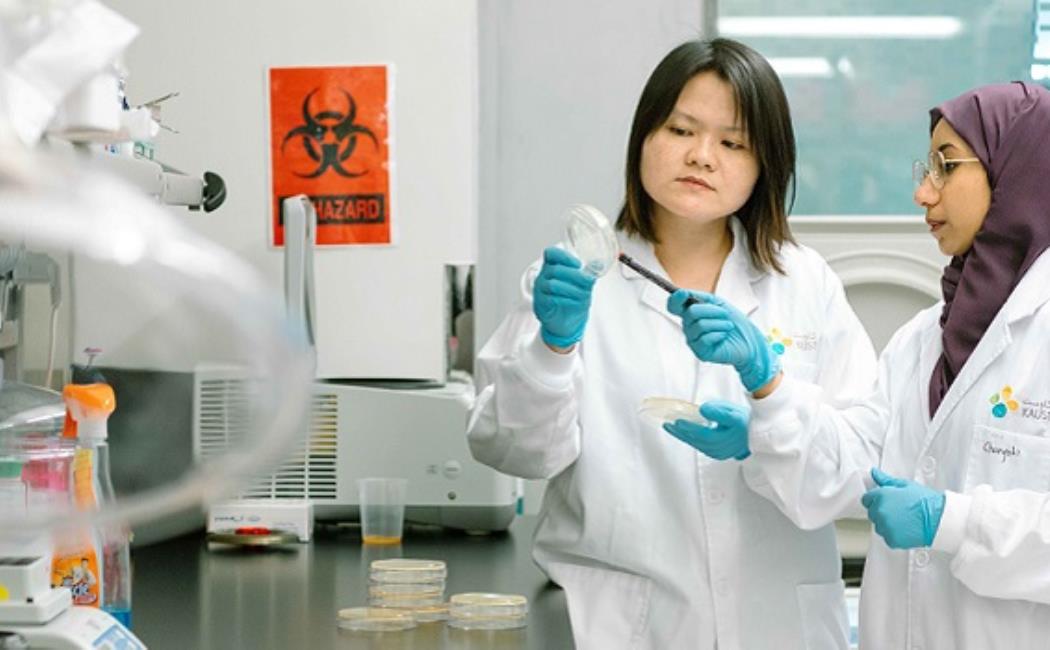
Combining forces to combat E. coli PI-7
07 January, 2019
Solar irradiation treatment, combined with naturally occurring viral components, could help destroy a highly antibiotic-resistant form of Escherichia coli (E. coli PI-7) that has been identified in Jeddah’s wastewater network.
Antibiotic resistance continues to develop rapidly in bacteria, which have evolving genes that can confer resistance through generations. One of these genes is the New Delhi metallo-β-lactamase gene, blaNDM, which E. coli PI-7 carries. Crucially, blaNDM confers resistance to antibiotics that are considered to be our last line of defense against certain diseases. This gene, and others like it, are found in increasing numbers in wastewater systems, which is a real concern for public health.
Click here to read the full story
Image: Peiying Hong (left), Nada Al-Jassim and colleagues seek answers to the growing problem of antibiotic-resistant bacteria found in wastewater.
© 2018 KAUST